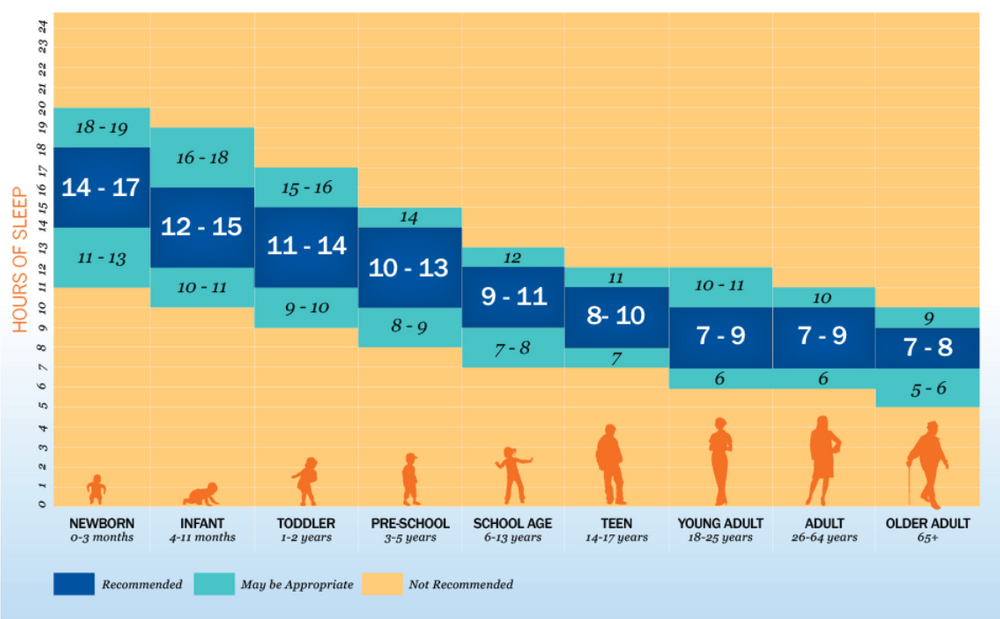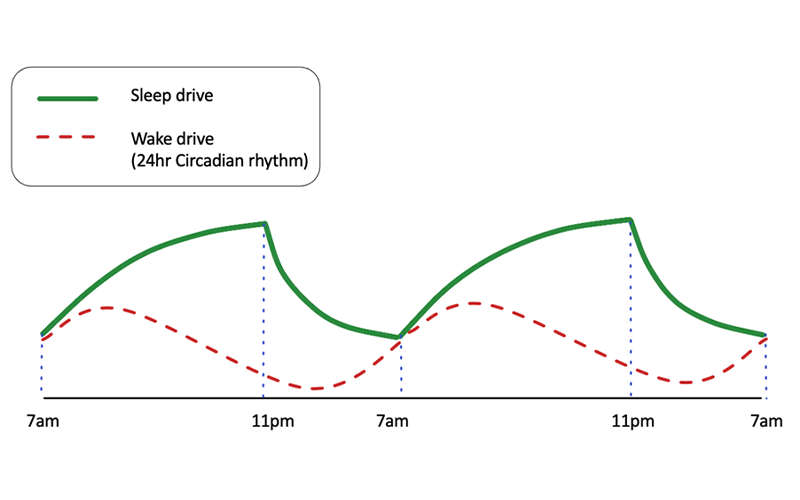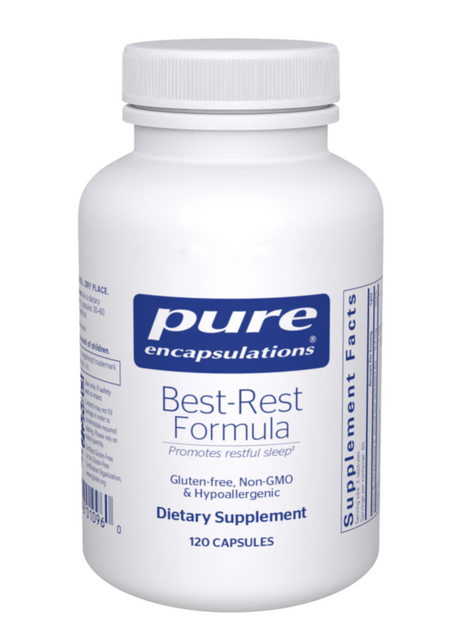Are you getting good sleep?
The best indicator of good sleep is how you feel in the morning. If you wake up feeling tired or sleepy, you likely did not get enough sleep or good quality sleep. Sleep affects more than just your energy or alertness though. A lack of sleep can contribute to
- memory issues or brain fogginess
- mood disorders, irritability, or anxiety
- poor immunity
- lower pain threshold
- increased blood pressure
- increased risk of stroke
- glucose intolerance
- weight gain
There are some people who just aren’t “morning people,” who wake up feeling tired regardless of sleep quantity or quality, but this should resolve in 30-60 minutes. If you continue to feel tired or sleepy throughout the day, read on to see how you can improve your sleep.
How much sleep does an adult need?
The average adult age 18-64 needs 7-9 hours and the average older adult age 65+ needs 7-8 hours. However, a small portion of adults may need as little as 6 hours or at most 10 hours. Research has shown people who consistently get less than 6 hours of sleep have overall poorer performance. So you should at least aim for 6 hours. People who only need 6-7 hours of sleep can actually cause more sleep issues by trying to force their brain to sleep for 8-9 hours. Experiment and see how much you need to function your best and try to keep it consistent.

What causes sleep?
Sleep is caused by a combination of sleep drive and wake drive (or circadian rhythm). Your sleep drive increases the longer you have been awake. If the average adult needs 8 hours of sleep, then you need 16 hours of wake time to have a high sleep drive at night. If you sleep in until 9am or nap during the middle of the day, you will have a lower sleep drive at 10-11pm which can make it hard to fall asleep. Circadian rhythm is controlled by hormones like cortisol and melatonin which are released in response to the sun, light, stress, genetics, and many more

How can you improve your sleep?
Establish a regular bed and wake time. Your body will not know when to sleep and wake up if that time is inconsistent and varies by more than 1 hour. No matter how you slept the night before, keep the same wake time and make sure you are spending no more than 8 hours in bed.
Limit light/stimulation and help your brain wind down. 1 hour before bedtime, limit time on electronics such as phones, computers, or tablets. The blue light from these devices can be just as stimulating to your brain as sunlight. Avoid catching up on work or things that increase your stress right before bedtime. Caffeine can linger in your system up to 8 hours so limit your caffeine use after lunch. Find an activity that helps you relax like reading a book, doing a crossword puzzle, or drawing.
Wait until you feel sleepy to get in bed. Most people have a 20-30 minute window when their body is ready for sleep, and if you get in bed before or after that time frame, it will be difficult to fall asleep or stay asleep. If you aren’t asleep within 30 minutes of getting in bed, go to another room and find a relaxing and quiet activity until you feel sleepy.
Believe it or not, the temperature of the room can play a part in good sleep. The ideal temperature for good sleep is 65 degrees F. However, temperature preference may vary from 63-67 degrees F.
Can I take anything Over the Counter to help me sleep?
Some OTC sleep aids (ie Nyquil, Benadryl) can give you a “sleep hangover” and make it harder to wake up in the morning. They can cause other side effects such as memory issues and dry mouth, and their effect tends to wear off after consistent use. While there is no magic pill, Smith Family Pharmacy carries a low risk supplement called Best-Rest Formula that contains 8 different ingredients all aimed to help with restful sleep. Talk to your doctor before starting new supplements as well as if you continue to have poor sleep as there could be other root causes.

